Why the Maldives hit Chinese shopping sites with a 30 percent fee
The tax reflects the US dollar black market premium.
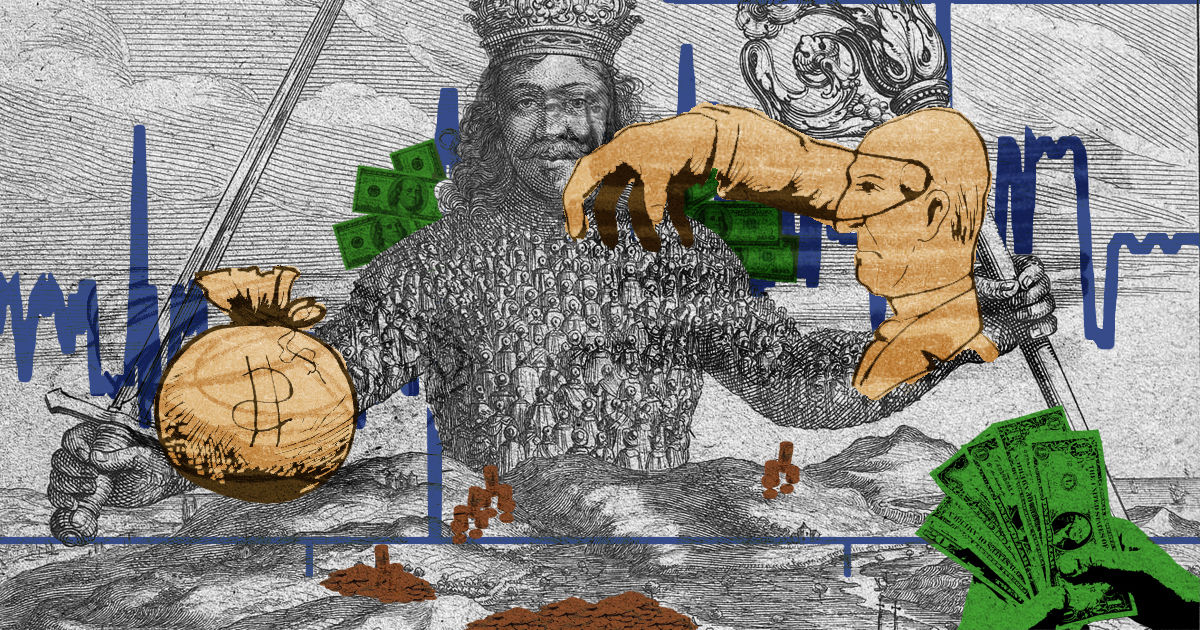
Artwork: Dosain
01 Jul 2025, 18:12
What was this bombshell announcement?
With effect on July 1, the foreign transaction limit was doubled from US$ 250 to US$ 500 per month for debit cards linked to Rufiyaa accounts. But there was a catch. A transaction fee of 30 percent was imposed on purchases from six e-commerce sites: Temu, Shein, Alibaba, AliExpress, Lazada and eBay.
“This transaction fee will not apply to other online foreign transactions such as hotel bookings, international flight tickets or subscriptions. Further, this transaction fee will not apply to customers using debit cards linked to USD accounts or credit cards,” the Bank of Maldives explained.
Citing the “misuse of debit cards” for US dollar withdrawals overseas for the domestic black market, foreign ATM cash withdrawal was slashed from US$ 250 to US$ 125 a month with a US$ 10 fee. But Maldivians residing overseas can continue withdrawing up to US$ 750 a month by registering online, the bank clarified on Tuesday, as students worried about paying rent.
Dollar support for telegraphic transfers (TT) was raised from five percent to 30 percent for small businesses, providing relief to importers struggling to make payments. The bank offered dollar support of 50 percent to larger businesses.
The vast majority of Maldivians use BML debit cards to shop online, pay for subscriptions or use while traveling abroad. During the Covid-19 pandemic in early 2020, the bank imposed limits of US$ 250 a month for using Visa or Mastercard linked to Rufiyaa accounts. The limit for Maldivians overseas was US$ 750 per month with exemptions for students to pay tuition fees.
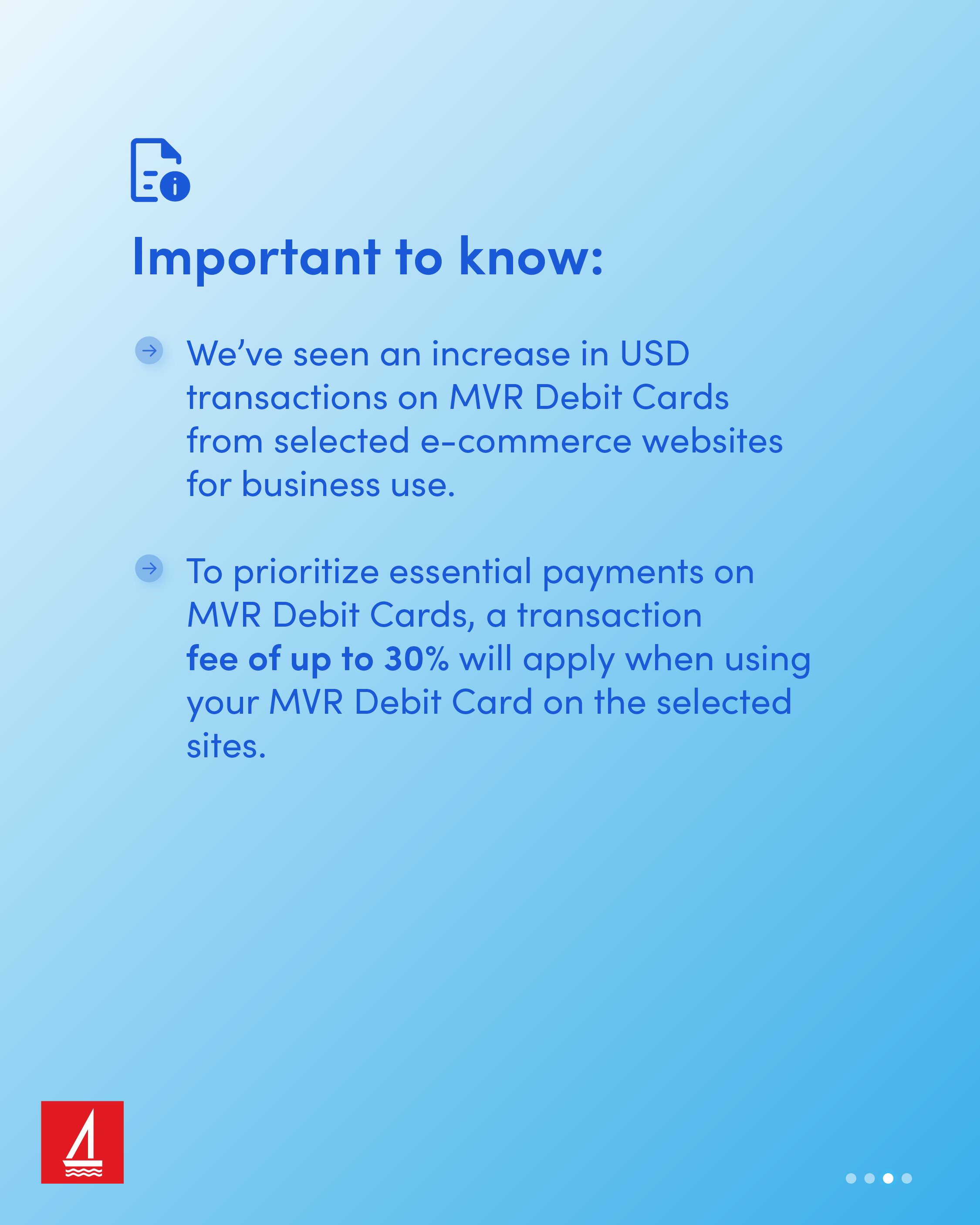
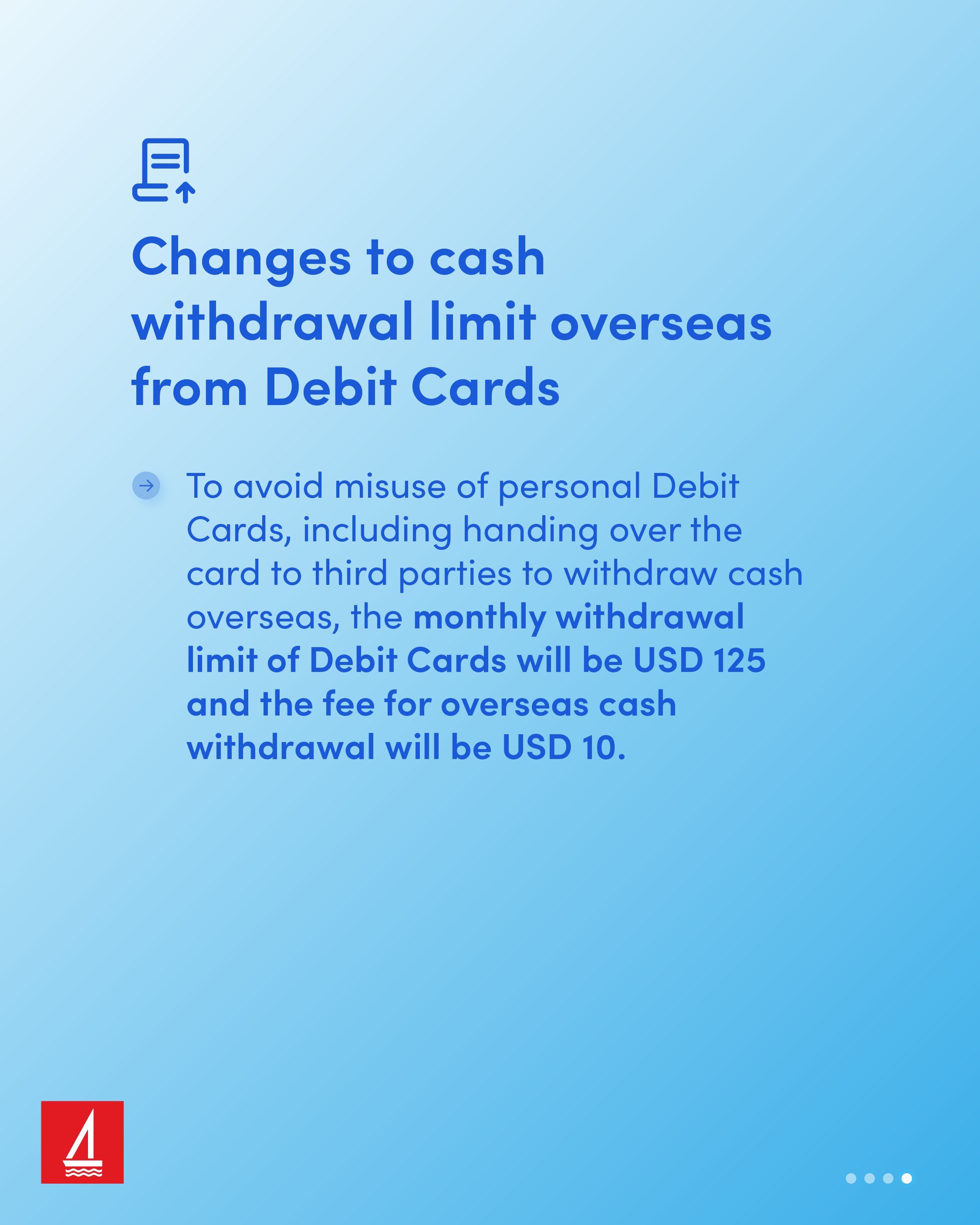
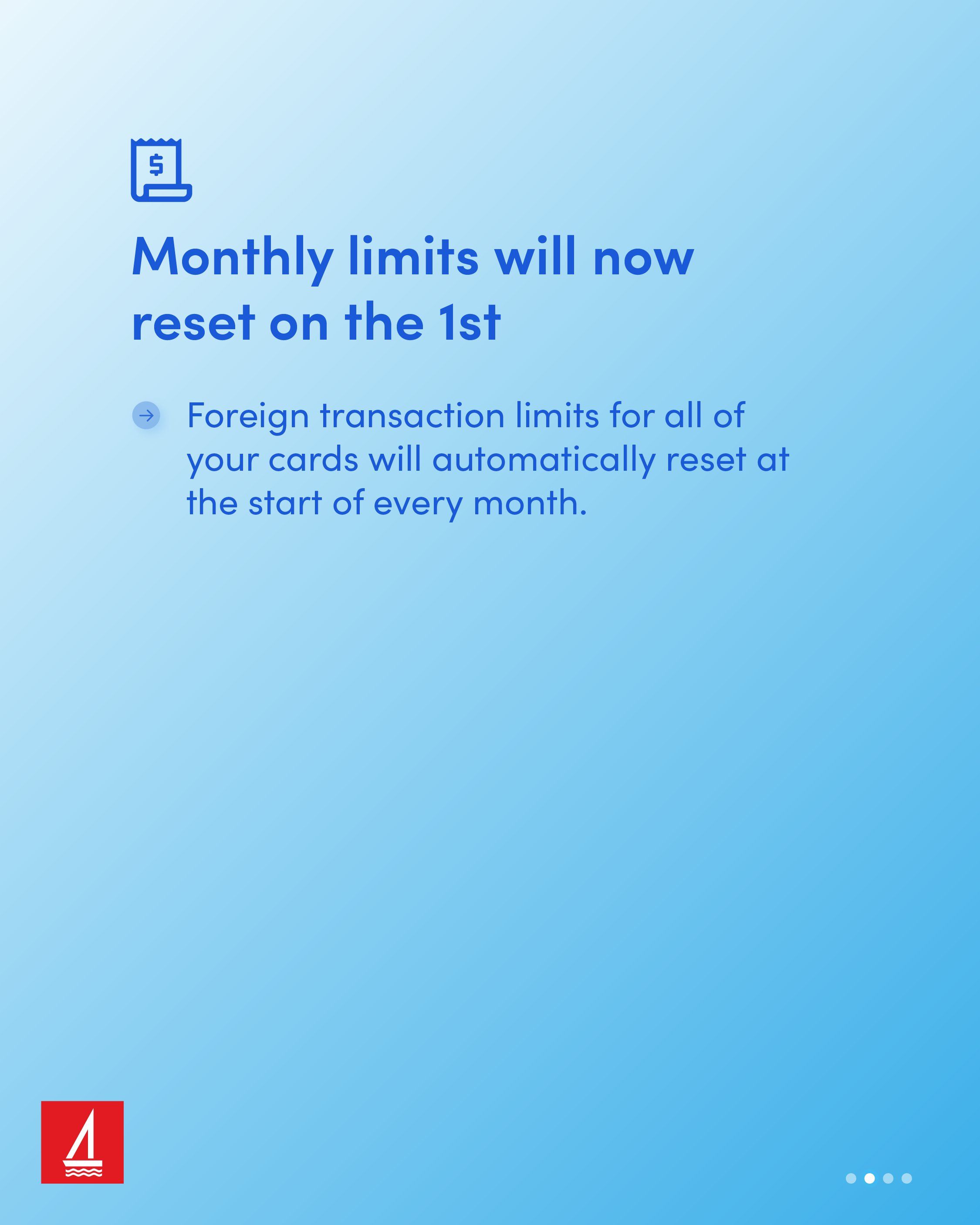
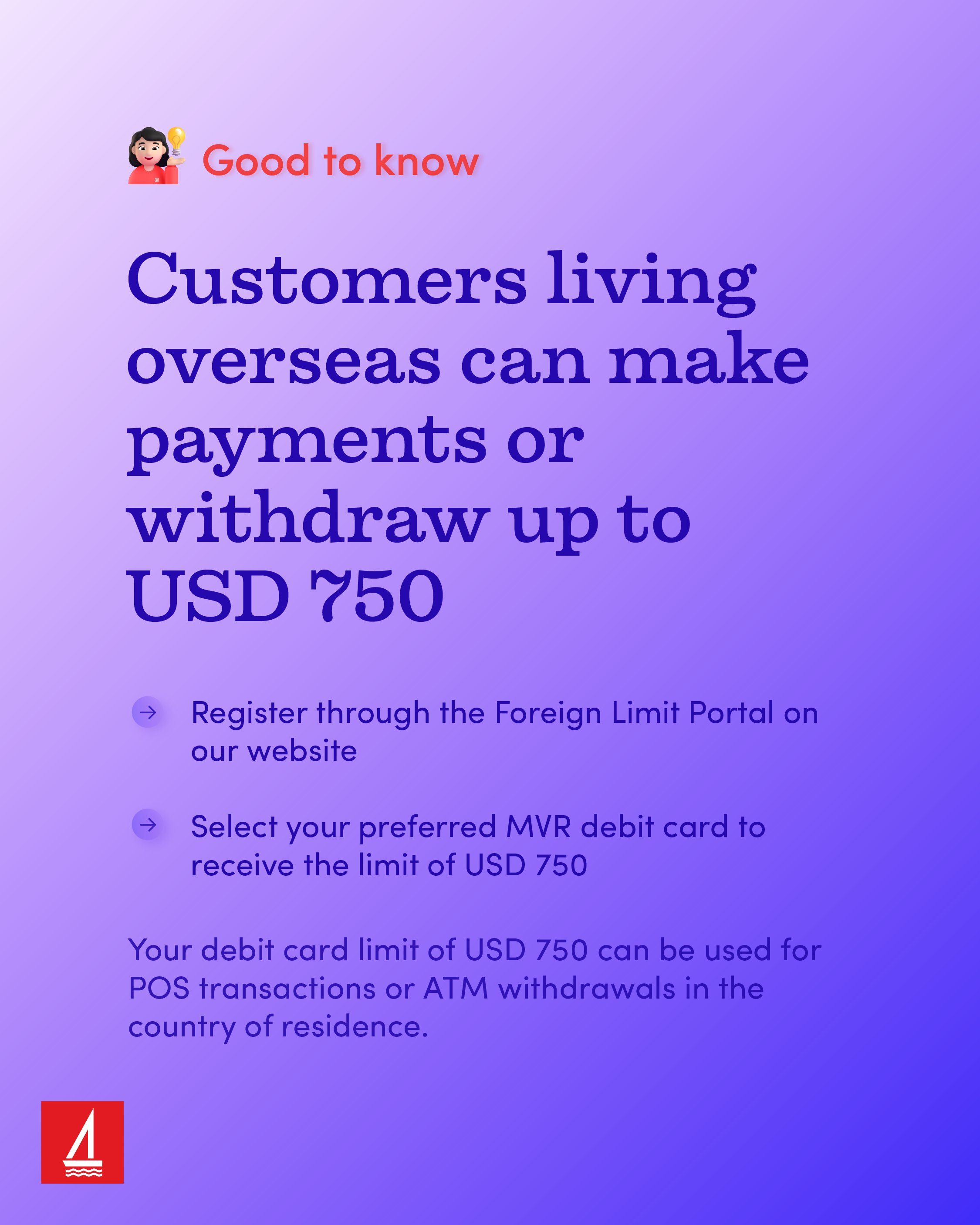
Why were six platforms targeted?
Online shopping represents 75 percent of foreign purchases by BML customers. The six merchants – five Chinese and one American – account for a third of e-commerce transactions (from a total of US$ 34 million a month). Temu, which launched free shipping in partnership with the Maldives Post in April, alone makes up US$ 7 million, “mostly used for business purposes,” according to BML, referring to local resellers of Temu products.
The new restrictions are “intended to address cases where a small number of individuals collect multiple cards and aggregate their limits for business use.” The measures are necessary to “support essential payments,” the bank said.
The amount of US dollars needed for foreign transactions is threefold higher than the amount of foreign currency the bank purchases from customers, former CEO Karl Stumke explained in August last year. "The card usage impacts our ability to provide foreign currency support to our business customers and we have this anomaly where the bank provides 75 percent less foreign currency to the economic sector than we do for discretionary spend on cards dominated by travel and online shopping,” he said at the time.
Why are people so upset with the bank?
Many Maldivians reacted furiously on social media because the blanket fee doesn’t discriminate between people buying clothes on Shein and businesses importing goods. It targets mainly Chinese e-commerce sites that ordinary people use for affordable shopping, and doesn’t apply to subscriptions or luxury spending like hotel bookings or international travel.
The exemption for wealthier individuals with credit cards or US dollar accounts creates a two-tier system, critics argued. Many questioned how the government could afford to operate 20 embassies and consulates and pay US dollar salaries to diplomats posted overseas. Others suggested that undercutting small businesses would benefit large retailers owned by powerful politicians.
As the national bank is effectively a government-controlled institution with 50.8 percent direct ownership and additional control exerted through state entities that hold 11.4 percent of shares, the shopping fee is essentially government policy implemented through its bank.
People also did the math. The 30 percent fee falls neatly on to the black market premium. The parallel market rate reached MVR 19.70 last week, nearly 28 percent above the official exchange rate of MVR 15.42.
Did the opposition pile on?
Of course. The transaction fee “effectively cements a high exchange rate and gives official recognition to what was previously an informal parallel market for USD-MVR,” MDP Chairman Fayyaz Ismail contended, calling the move “yet another troubling step in a series of misguided economic and foreign exchange policies, one that unfairly shifts the burden of policy failure onto ordinary citizens.”
MDP President Abdulla Shahid accused the national bank of “profiteering from a currency shortage that was engineered by the government's failure to secure foreign financing and manage reserves responsibly."
He continued: “Instead of reform, we see a shift of economic burden onto the average Maldivian family – widening inequality, shrinking access to global goods, and worsening the cost-of-living crisis. This policy doesn’t solve the problem – it institutionalises hardship and reinforces a dual economy where the poor pay more and the rich find a way around.”
What's the bigger picture?
A looming debt crisis with US$ 688 million due this year and a whopping US$ 1.1 billion in debt service obligations next year – a figure that eclipses the U$ 856 foreign currency reserves as of April (which was shored up by a US$ 400 million currency swap with India). Last month, ratings agency Fitch maintained the country's "junk" status, reflecting an assessment that "a default event remains probable."
The foreign reserve is barely enough to cover one and a half months of imports. The black market rate for US dollars is at the highest level since the Covid-19 pandemic brought tourism to a standstill. Businesses are unable to secure enough dollars to cover imports.
Why does the Maldives need so many US dollars?
The Maldives imports everything from food, fuel, medicines and construction materials, all of which must be paid for with foreign currency (primarily US dollars), creating a constant unmet demand.
Where do the dollars come from?
Almost entirely from tourism. The US$ 5 billion industry accounts for 60 percent of foreign currency receipts. As of May, the sector generated US$ 361 million in dollar-denominated revenue from the tourism goods and services tax (T-GST) – up 10 percent from the same period in 2024 with tourist arrivals up eight percent from last year.
So if tourism is booming, why is there still a dollar shortage?
The longstanding dollar shortage stems from structural imbalances. Despite substantial inflows from tourism, a high import bill and rising debt payments create persistent outflows. Current account deficits have consistently exceeded 30 percent of GDP and external debt reached 133 percent of GDP last year.
According to the International Monetary Fund, the tourism industry “appears to be a key supplier and driver” of the dollar black market, with the stable premium indicative of an oligopoly with “only a few large suppliers of foreign exchange who are able to adjust supply to the parallel foreign exchange market.” The previous 10 to 15 percent premium offered a compelling incentive for resorts that need Maldivian Rufiyaa to cover operational costs.
Experts have also blamed new policies for the present crisis. In its desperation to build up foreign currency reserves for the upcoming debt payments, the government has been aggressively capturing dollars for itself rather than letting them circulate freely in the economy.
What policies has the government implemented?
Mandatory dollar surrender. A new foreign exchange law made it obligatory for tourism businesses to exchange a portion of foreign currency receipts with local banks. As of May, banks must sell 90 percent of these dollars to the central bank.
"If the largest supplier of forex, the tourism industry, is now required to convert US$ 500 per tourist or 20 percent of revenue through banks, this reduces the supply available to the parallel market. When rates start going up, those holding US dollars might hoard anticipating a bigger payout," a fiscal policy expert told the Maldives Independent.
How have businesses adapted?
Universal, one of the country's largest resort operators, switched from paying service charges to staff in dollars to local currency. Many other resorts do the same. Domestic airlines and travel companies have switched to paying a portion of wages in local currency. This has the effect of reducing the amount of dollars available in the parallel market.
What does the government say?
After unrealistic campaign promises to eventually scrap the foreign transaction limits, President Dr Mohamed Muizzu admitted in April that the dollar shortage won't be resolved until 2027.
Do experts believe the government's timeline?
They are skeptical. As one told the Maldives Independent: "The government's new policy is good for the foreign currency reserves. Reserves will improve but the banks are not supplying dollars to the private sector. The private sector has to rely on the parallel market, which has a supply issue because of the new rules."
What's the outlook?
The situation likely won't improve significantly until after 2026, when the major debt obligations are either paid down or restructured. The government faces a choice between continuing policies that build reserves but hurt the domestic economy, and relaxing restrictions and risking sovereign default.
For businesses and consumers, this means continued high costs for imports and potential widespread price increases across all goods.
Discussion
No comments yet. Be the first to share your thoughts!
No comments yet. Be the first to join the conversation!
Join the Conversation
Sign in to share your thoughts under an alias and take part in the discussion. Independent journalism thrives on open, respectful debate — your voice matters.




